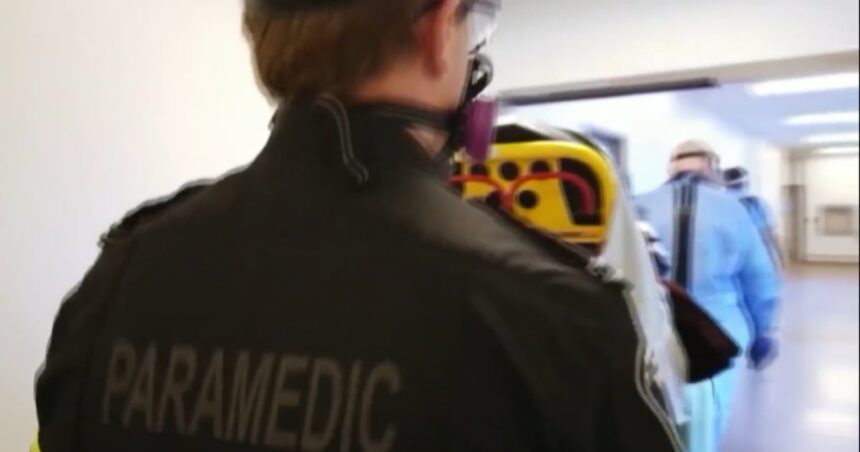The piercing wail of sirens cuts through another night shift as paramedic Jen Koroll rushes toward yet another emergency. For her and hundreds of other Saskatchewan first responders, these moments of crisis have become routine—but the psychological toll is anything but ordinary.
“It’s exhausting,” Koroll admits, her voice revealing the strain of a 15-year career spent on the frontlines. “You’re constantly going from call to call. There’s no downtime to process what you’ve just witnessed before you’re thrown into another emergency.”
Saskatchewan’s paramedic mental health crisis has reached alarming levels, with a recent survey revealing that 74% of emergency medical personnel report symptoms of burnout. The situation has prompted renewed calls for systemic changes in how the province supports its first responders.
Steven Skoworodko, a veteran paramedic and advocate with the Paramedic Services Chiefs of Saskatchewan, points to the hidden psychological burden carried by his colleagues. “We respond to the worst day of someone’s life, then we’re expected to compartmentalize those experiences and move on to the next call,” he explains. “Over time, those compartments fill up, and there’s nowhere for those emotions to go.”
The COVID-19 pandemic only exacerbated existing pressures. Provincial data indicates emergency call volumes increased by 23% since 2019, while staffing levels have remained largely stagnant. This imbalance has created a perfect storm of overwork and psychological strain.
“The mental health supports that exist aren’t adequate,” says Dr. Karen Mosier, a clinical psychologist specializing in first responder trauma. “Saskatchewan’s emergency services need dedicated resources that address the unique stressors paramedics face—including immediate access to counseling, mandatory decompression time between critical incidents, and long-term psychological care.”
Some progress has emerged. The provincial government recently allocated $1.7 million toward a pilot program focused on first responder mental health initiatives. The program will establish peer support networks and provide specialized trauma-informed therapy options specifically designed for emergency personnel.
Health Minister Everett Hindley acknowledged the crisis during a press conference last week: “Our first responders show up for Saskatchewan residents during their most vulnerable moments. We recognize our responsibility to ensure they receive the support they need in return.”
For paramedics like Troy Davies, who serves both as a frontline responder and with the Medavie Health Services West, these initiatives represent a promising start but fall short of addressing the core issues. “We need sustainable solutions—better staffing ratios, mandatory mental health breaks, and a culture that actually encourages seeking help instead of just paying lip service to it,” Davies emphasizes.
The personal stories behind the statistics reveal the human cost. Many paramedics describe struggling with sleep disorders, relationship difficulties, and substance use issues. Some leave the profession altogether, creating further staffing shortages in a cycle that intensifies pressure on those who remain.
Andrea Howarth, who left paramedicine after eight years, describes her breaking point: “I started having panic attacks just putting on my uniform. The accumulated trauma catches up with you—the child fatalities, the domestic violence cases, the elderly patients suffering alone. When I realized I couldn’t sleep more than two hours without nightmares, I knew I had to choose between the job and my sanity.”
Patient care ultimately suffers too. Research from the Canadian Institute for Public Safety Research and Treatment shows that first responders experiencing untreated mental health conditions are more likely to make medical errors and report decreased empathy—outcomes no paramedic wants.
As Saskatchewan grapples with this crisis, the question becomes increasingly urgent: How can a province that depends so critically on these emergency responders justify a system that systematically breaks them? The well-being of both paramedics and the public they serve hangs in the balance.

























